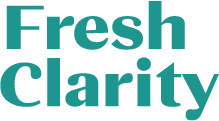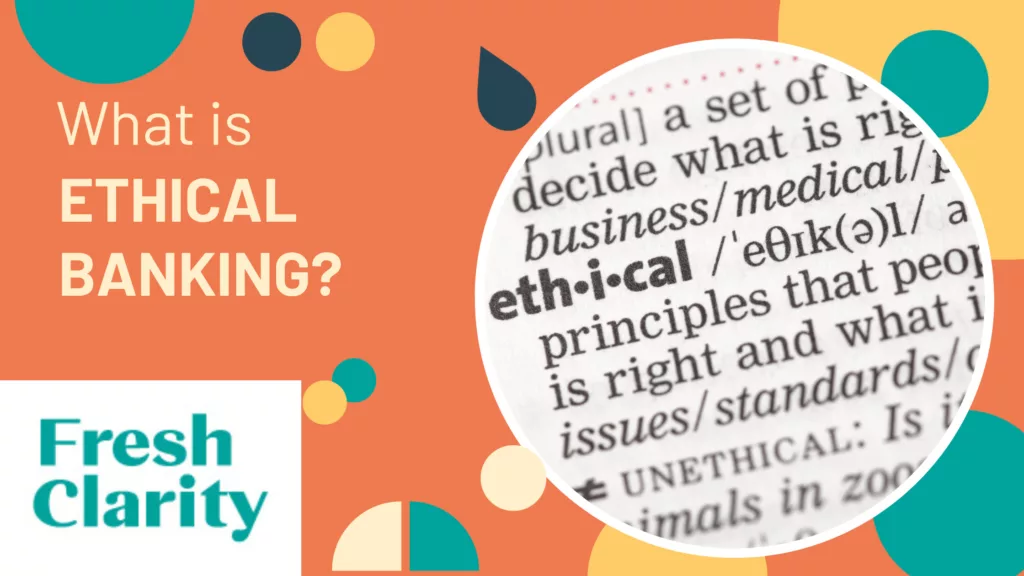What is Ethical Banking? You might have heard the term, but what does it really mean?
This blog will help you understand what ethical banking is all about and why it matters for small businesses. It will guide you on how to choose an ethical bank, what ethical banking services are available, and how to use ethical banking to improve your business and make a positive impact on the world.
Have you ever really considered what your bank does with your money?
Ethical banking is important for small businesses because it can help you build a good reputation, attract customers who care about ethical values, and make sure your business doesn’t harm the planet or the people in your community.
What does ethical banking mean for small businesses?
Ethical banking means choosing a bank or financial institution that cares about more than just making money. You can chose a bank that also cares about doing good things for the environment, the community, and society.
Do you value having a bank that wants to do good things for the world while also helping you with your business finances? Being ethical is all about following certain rules or principles that focus on being fair, honest, and responsible. For a bank, it’s also in the way they handle money. This means they don’t just care about making profits, but also about doing what’s right for people and the planet.
Social Responsibility:
- Ethical banks care about helping society. They might support local charities, donate to causes that help people in need, or even offer fair loans to small businesses like yours. This way, your money is used to make the world a better place.
Environmental Sustainability:
- Ethical banks also want to protect the environment. They won’t invest in industries that harm nature, like fossil fuels or deforestation. Instead, they might invest in clean energy or eco-friendly projects. So by choosing an ethical bank, you’re helping the planet too.
Community Development:
- Ethical banks are all about supporting the community. They might help fund projects that benefit your local area, like building schools, improving healthcare, or creating jobs. This means your money stays close to home and helps your community grow.
What is the benefit for Small Businesses?
#1. Improved Reputation:
When you bank with an ethical bank, it shows that you care about more than just profits. This can boost your business’s reputation because customers like to support companies that do good in the world. So, people may be more likely to choose your products or services.
#2. Attracting Socially Conscious Customers:
Ethical banks often attract customers who also care about ethical values. So, if your business banks with them, you’ll likely appeal to these socially conscious customers who want to support ethical businesses. This can help you grow your customer base. By banking ethically, you can attract socially conscious customers who want to spend their money with companies that do good in the world.
#3. Long-term Sustainability:
Ethical banking focuses on long-term sustainability, not just short-term gains. This aligns with the way small businesses often plan for the future. Ethical banks can provide you with financial solutions that help your business thrive over time, ensuring its long-term sustainability.
Incorporating ethical values into your brand
Once you’ve transitioned to ethical banking, you can use this positive change to enhance your brand. Let your customers know that you’re now banking with an institution that shares your ethical values. Highlight this on your website, social media, and marketing materials.
- Explain how your business is committed to ethical practices, such as supporting local communities or caring for the environment. This can create a positive image for your business and attract customers who value ethical companies.
- Attracting Socially Conscious Customers: many consumers today prefer to support businesses that share their values. Make sure your marketing messages reach these potential customers to grow your business.
- Improved Employee retention: When you have employees who understand and share your ethical practices, they are more wiling to work to the best of their ability and this in turn reflects well on your company, both with clients and potential new recruits.
A study by the Ethisphere Institute reported that ‘Ethical Companies’ outperform the market average by over 10%.
In simple terms, transitioning to ethical banking means finding a bank that aligns with your values and then smoothly moving your financial affairs to this new bank. Once you’re there, review your banking choices regularly, and use your ethical banking commitment to enhance your brand and attract customers who care about ethical practices.
Ethical Banking Challenges and Solutions
What are the challenges Small Businesses May Face
- Ethical banking services may sometimes come with slightly higher fees compared to traditional banks. This might affect your budget, especially if you’re a small business with limited resources.
- Limited Options: Ethical banks might have a smaller presence or fewer branches compared to larger, mainstream banks. This limitation in accessibility can make it difficult for small businesses to find a local ethical bank that meets their needs.
- Balancing Ethics and Financial Needs: Small businesses often need to strike a balance between ethical considerations and financial requirements. Ethical banks might have stricter criteria for lending or investment, making it challenging for businesses to meet these standards while addressing their financial needs.
Solutions to Overcome Ethical Banking Challenges
- To address potential higher costs associated with ethical banking, it’s essential to incorporate these costs into your financial planning and budgeting. Create a budget that accounts for these expenses, and look for ways to offset them through increased efficiency or other cost-saving measures.
- If you can only find ethical banks online and prefer a branch, then businesses can collaborate with other ethical businesses and organisations to collectively approach ethical banks and encourage them to expand their services to more locations.
- Carry out thorough research and weigh up the pros and cons of different banks so you can find the best fit for your ethics and finances.
For more information on Ethical Banking
If you are looking for an ethical bank, some options are listed here Current Accounts Ethical Banks in the UK (moneyexpert.com)
For more information about business banking, planning or ideas to help grow your small business, let us know and we can add your details to receive our newsletters.
Fresh Clarity specialise in helping small business owners like you to free up your time, improve your finances, get that all-important peace of mind and work-life balance, and above all, to manage and grow your business successfully and sustainably.

